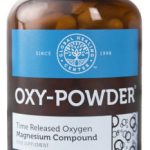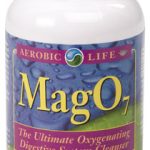So you’re feeling a little frazzled, a bit tired, even a tad run down? Doesn’t everyone now and then? Well, a lot of people do, but equally, it may be preventable. There could be a reason why, on top of leading a busy working, family and social life as you may do, you feel physically exhausted now and again. It may be because you’re not looking after your body and maintaining your metabolism as you well as you might.
Metabolism refers to the chemical reactions that occur in the body, not least digestion and the transport of food and energy to and between different cells. And it’s to understand this process – and what you are eating and how you lead your life – as to why you have a ‘high metabolism’ (you digest food and can use it as energy relatively quickly) or a ‘low metabolism’ (your body takes longer to digest food and use it as energy). In a good number cases, the lower a person’s metabolism, the more likely they’ll feel physically tired; the higher the metabolism, vice versa.
Low metabolism – why?
Of course, you use energy from the food you eat and burn fat while you’re physically active, but in reality, you also do so when you’re at rest. And it’s this that essentially defines the kind of metabolism you have, as it’s when you’re at rest your basal metabolic rate (BMR) is measured for how quickly and effectively you burn fat. To that end then, should you realise your BMR is slow and that may ensure why you feel tired too much of the time, there are several reasons why it might be:
- Diet – all those fatty, processed, sugary foods are doing you no good whatsoever
- Dieting – yes, that’s right; dieting tends to do little to help your metabolism because low calorie diets force your body into ‘starvation mode’, thus slowing the metabolism down as it attempts to preserve calories instead of burning them; note that when you resume eating after the diet it’ll preserve the calories still – but as fat
- Sleep hygiene – your body won’t process food and use energy efficiently if you’re not sleeping well and are exhausted
- Pressure and stress – stress brings on the production of the cortisol hormone which, unfortunately, eventually contributes to body fat
- Toxicity in the body – toxins and ‘free radicals’ slow down your metabolic rate because, while the body’s converting food into energy, it’s also fighting hard to eradicate such harmful molecules and micro-organisms
- Medical factors – weight gain can result from thyroid and adrenal issues and family genetics, thus inevitably slowing down your metabolism (especially as you age).
High metabolism – how?
So to ensure a healthy metabolism what should you be doing? First off, start exercising. It needn’t be difficult; sure, it may be challenging to start with, but say you exercise every day for 10 minutes; eventually you’ll get used to it and, in time, find it relatively easy to slowly increase the amount to 12 minutes, then 15 and then 20. And exercise at work too. Be sure to get up from your desk and walk about every once in a while (preferably up and down stairs) and walk the dog daily if possible. Incorporating such short bursts of energy-use throughout the day will help keep your metabolism ticking over.
And then there’s your diet, of course; this has a huge impact on your metabolism. Indeed, after a night’s sleep (when it naturally slows down), try to start the morning by eating a fresh fruit-based breakfast first-thing, kicking off the day with a boost to the metabolism so you start burning calories as soon as possible – and aim to keep on doing so throughout the rest of the day:
- Meals – eat smaller helpings at meal times but keep eating throughout the day; fewer but regular helpings will burden your digestion less
- Snack on fruits – many are ‘negative calorie’ foods, such as apples, asparaguses, avocados, broccoli, cabbages, carrots, cauliflower, celery, berries, cucumbers, grapefruits, lemons, lettuce, onions, oranges, papayas and pineapples
- Go for lean protein – raw nuts and seeds are rich in protein so are packed with amino acids, ensuring you burn more calories and get your metabolism working harder to break it down as it passes through your digestion system.
Cleansing– why not try supplements?
Why not, indeed! Hopefully it’s now clear that focusing on diet, eating habits and remaining physically active is crucial to improving your metabolism, but who would turn down further help? And if, for whatever reason, you’re incapable of exercising as much as you’d like to or unable to change your diet as much as you might, then supplementation’s a great alternative or enhancement – specifically digestive cleansing supplements.
Available from us at The Finchley Clinic, all three of the following products help eradicate from the body toxins and the like that slow down digestion, thus helping to speed up your metabolism naturally:
Oxy-Powder – a high-quality oxygen cleansing supplement, it oxygenates and cleanses the small and large intestines, leading to an optimal bowel environment to aid a well-functioning metabolism
Mag O7 – a colon cleanser that releases nascent oxygen for fast acting (usually overnight) results
Livatrex – ideal for liver cleansing, a product designed to support and drive the natural process of detoxifying, flushing and purging the liver of built-up toxins, fatty deposits and more.



